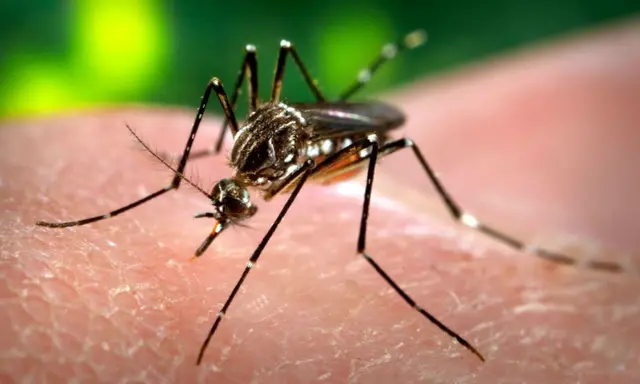A 79-year-old woman who lives in Central and often visited the Zoological and Botanical Gardens has become the first person to contract dengue fever in the city, prompting the health officials on Tuesday to urge the public to maintain strict mosquito control.
Some 81 people have been treated for the mosquito-borne disease this year in Hong Kong, however 79 of those were classified as imported cases, with one case still under investigation.
Dengue fever is transmitted to humans through bites from infective female Aedes mosquitoes – a commonly found species that can also spread Zika virus.
The Centre for Health Protection said the patient, who has underlying illnesses, had no recent travel history. She lives in Shelley Street in Central, and often visited the Zoological and Botanical Gardens.
She developed a skin rash about two weeks ago and was treated at Queen Mary Hospital. After being admitted for two days, she was discharged on August 27, in a stable condition.
Blood tests on Monday night confirmed she had contracted dengue fever.
Earlier this month, another women who lived in the Central district was found to have the tropical disease, and also reported that she had visited the gardens in the Mid-levels. She was bitten by mosquitoes in Hong Kong and on the mainland.
The patient often visited Hong Kong Zoological and Botanical Gardens. Photo: File
“We are conducting extensive investigations with the Food and Environmental Hygiene Department (FEHD) to ascertain if both cases are linked with a view to controlling the possible spread,” said a spokesman for the centre.
He said the centre will conduct site visits and field investigations with questionnaire surveys at the patient’s residence.
Severe dengue fever is serious and potentially fatal. Without proper treatment, the fatality rate of severe dengue can exceed 20 per cent, he said.
He urged the public to maintain strict environmental hygiene, mosquito control and personal protective measures both locally and during travel.
“Early referral and prompt control are critical to prevent further local spread,” the spokesman said.
“We will issue letters to doctors and hospitals to alert them to the case. We will also enhance surveillance of suspected cases in collaboration with public and private hospitals as well as private doctors.
“At present, there is no locally registered dengue vaccine available in Hong Kong. Strict environmental hygiene, mosquito control and personal protective measures remain the most effective means against DF both locally and during travel,” the spokesman added.
Travellers are urged to be alert to the dengue risk and to take preventive measures such as wearing loose, light-coloured, long-sleeved tops and trousers, and use DEET-containing insect repellent on exposed parts of the body and clothing.
After returning from dengue endemic areas, continue to apply insect repellent for 14 days, he said.
Anyone feeling unwell after returning from a trip should seek medical advice as soon as possible and provide travel details to their doctor.
The public can also report mosquito problems to government departments via the hotline 1823.
(SOUTH CHINA MORNING POST)
 简体中文
简体中文

